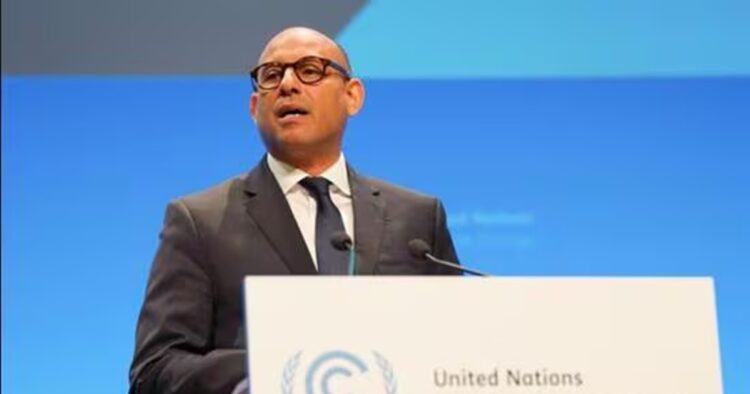Recently in an address at the G7 ministerial meeting on climate, energy, and environment in Turin, Italy, Simon Stiell, the United Nations climate chief, has called on G7 nations to ramp up their efforts in combating the climate crisis and to increase climate finance.
Stiell emphasized that it’s imperative for the G7, comprised of major developed economies, to lead the way in taking more ambitious actions to address climate change.
Stiell debunked the notion that the G7 should hold back on decisive climate actions to avoid influencing global negotiations.
As the head of the United Nations Framework Convention on Climate Change (UNFCCC), he stressed that the G7 has the capacity and responsibility to make important strides independently, without hindering broader negotiation processes.
Highlighting the current shortfall in renewable energy targets, Stiell pointed out that the collective aim of the G7 to double renewable capacity falls short of what’s needed to meet global climate goals.
According to analysis by Ember, an energy think tank, there’s a notable gap between current targets and the necessary tripling of renewable capacity.
The ongoing G7 ministerial meeting in Italy presents a crucial opportunity for world leaders to demonstrate leadership and momentum in tackling climate change.
Failure to do so not only risks undermining global climate objectives but also sets a discouraging precedent for future actions.
Stiell stressed the urgency of transitioning away from fossil fuels and emphasized the importance of deeper emissions cuts and increased climate finance. He warned against investing public funds in fossil fuel subsidies and urged G7 leaders to prioritize transitioning to cleaner energy sources.
Referring to the recent COP28 Summit, Stiell reiterated the necessity of halving emissions by the end of the decade and emphasized the need for demand reduction measures alongside supply-side efforts.
He called on G7 leaders to align their actions with the goals outlined in the UAE Consensus, which emphasizes transitioning away from fossil fuels and accelerating renewable energy deployment.
In order to meet the goals of the Paris Agreement and deliver on the New Collective Quantified Finance Goal (NCQG), Stiell emphasized the importance of G7 nations increasing climate finance commitments. He urged finance ministers to prioritize climate action and warned against using budget constraints as an excuse for inaction.
Stiell concluded by urging G7 leaders to prioritize climate action and to deliver substantial new pledges for climate finance. He emphasized the need for collective and decisive action to address the climate crisis without delay.

















Comments